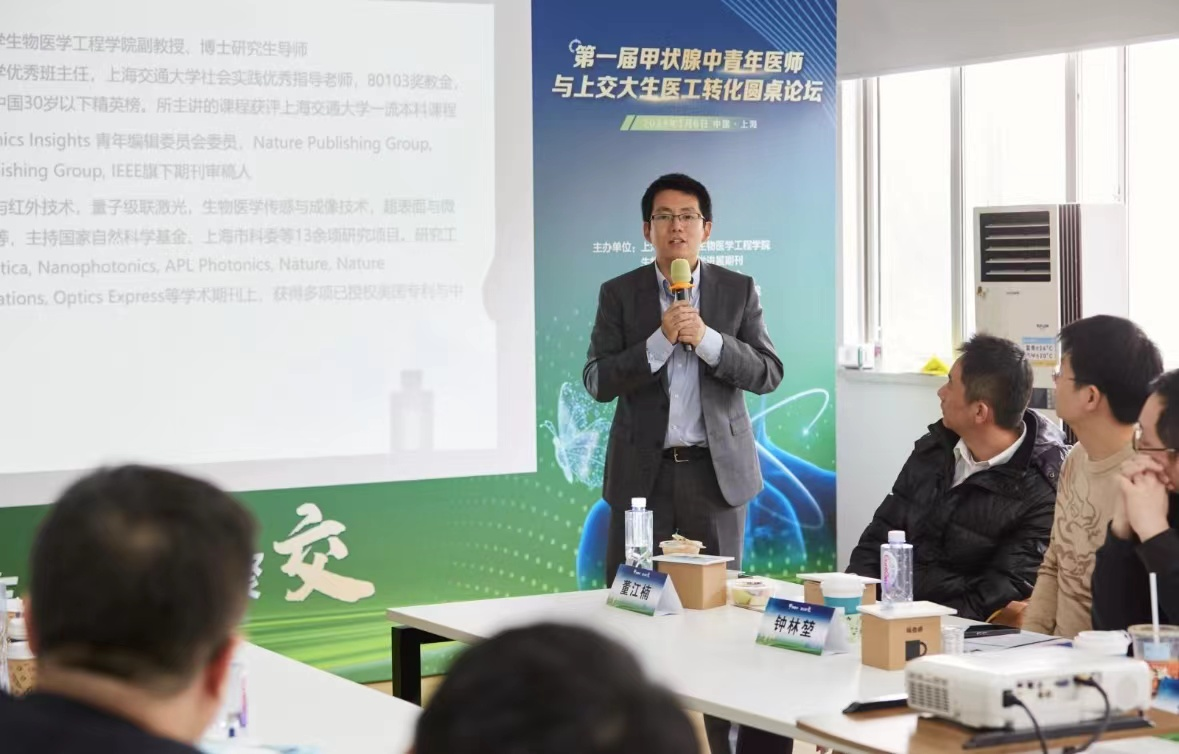


First Young Physicians and SJTU Biomedical Engineering Forum on Thyroid Disease: A Step Towards Innovation in Medical Engineering
January 08, 2024
On January 6th, the inaugural Young Physicians and Shanghai Jiao Tong University (SJTU) Biomedical Engineering Forum on Thyroid Disease was grandly held at the School of Biomedical Engineering, SJTU. The event was jointly organized by the School of Biomedical Engineering of SJTU, the Journal of Advances in Biomedical Engineering, and the Shanghai Society of Biomedical Engineering.
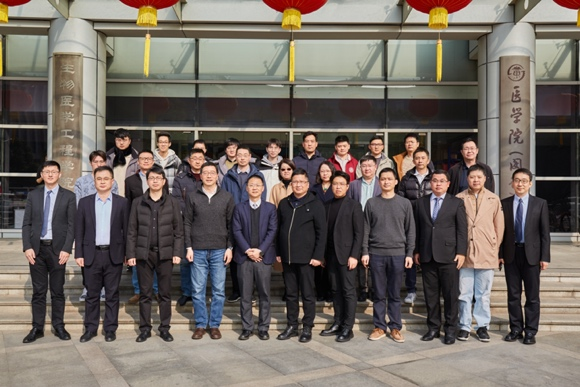
The forum commenced under the leadership of Professor Xu Bo, the vice-chair of the Young Committee and standing committee member of the Thyroid Disease Professional Committee.
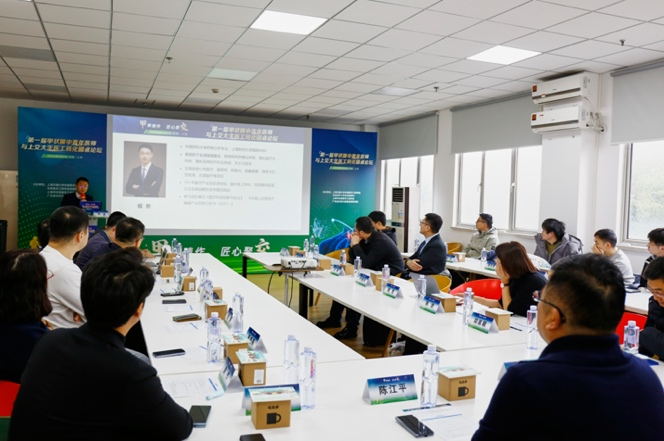
Professor Chen Jiangping, Secretary of the Party Committee of the School of Biomedical Engineering at SJTU, delivered the opening address.
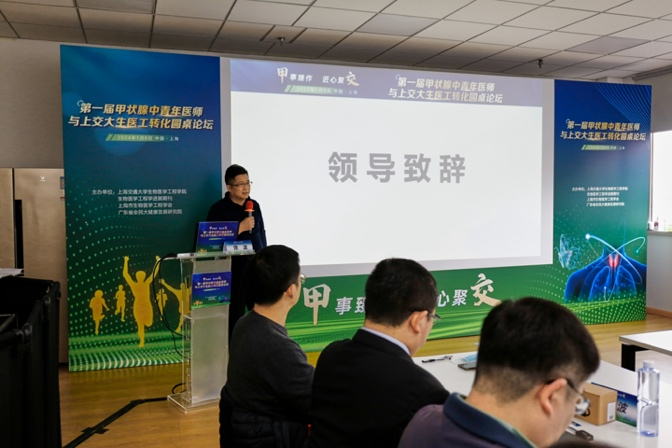
Professor Qian Dahong of SJTU’s School of Biomedical Engineering briefly introduced the discipline structure, talent model, and the scale of faculty and students of the School.
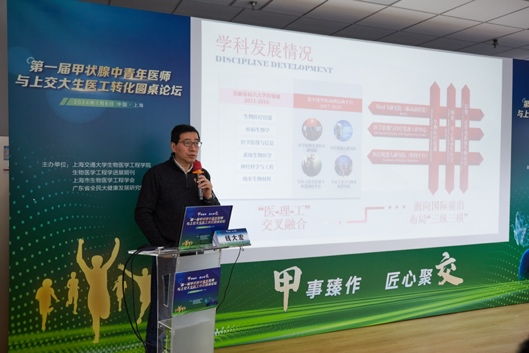
Cheng Si, founding partner of Medistar, discussed the transformational landing model from a capital perspective, highlighting the importance of interdisciplinary collaboration in medical engineering for product innovation and business operation.
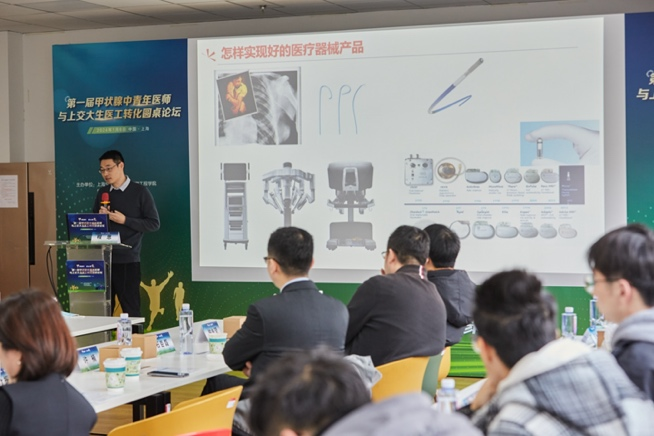
Professor Li Peng from Peking University Shenzhen Hospital elucidated the principles and development of intraoperative neuromonitoring in thyroid surgery. He discussed the advantages and disadvantages of EMG tracheal intubation and needle electrodes in monitoring applications and shared his vision for the future of nerve monitoring technology.
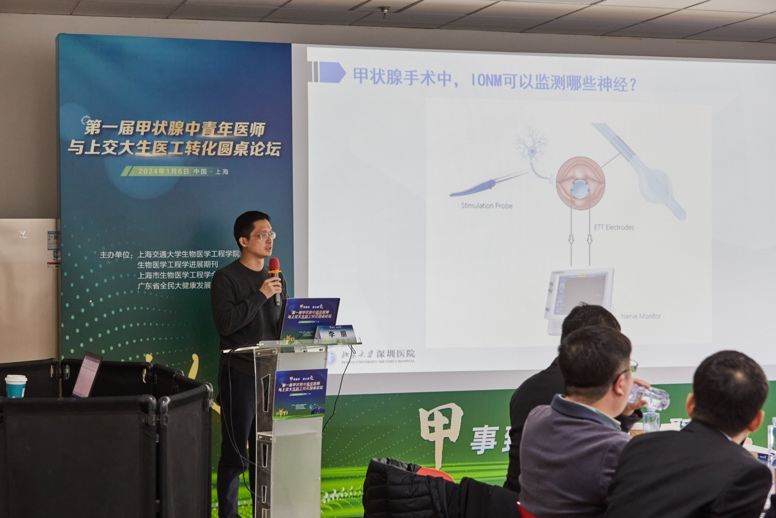
Professor Wang Bo from the Fujian Medical University Union Hospital introduced the application of artificial intelligence (AI) in intraoperative recognition and protection of parathyroid glands, breaking through traditional limitations. With AI, parathyroid glands are clearly visualized, and those with poor blood supply are preemptively identified, aiding surgeons in timely protection.
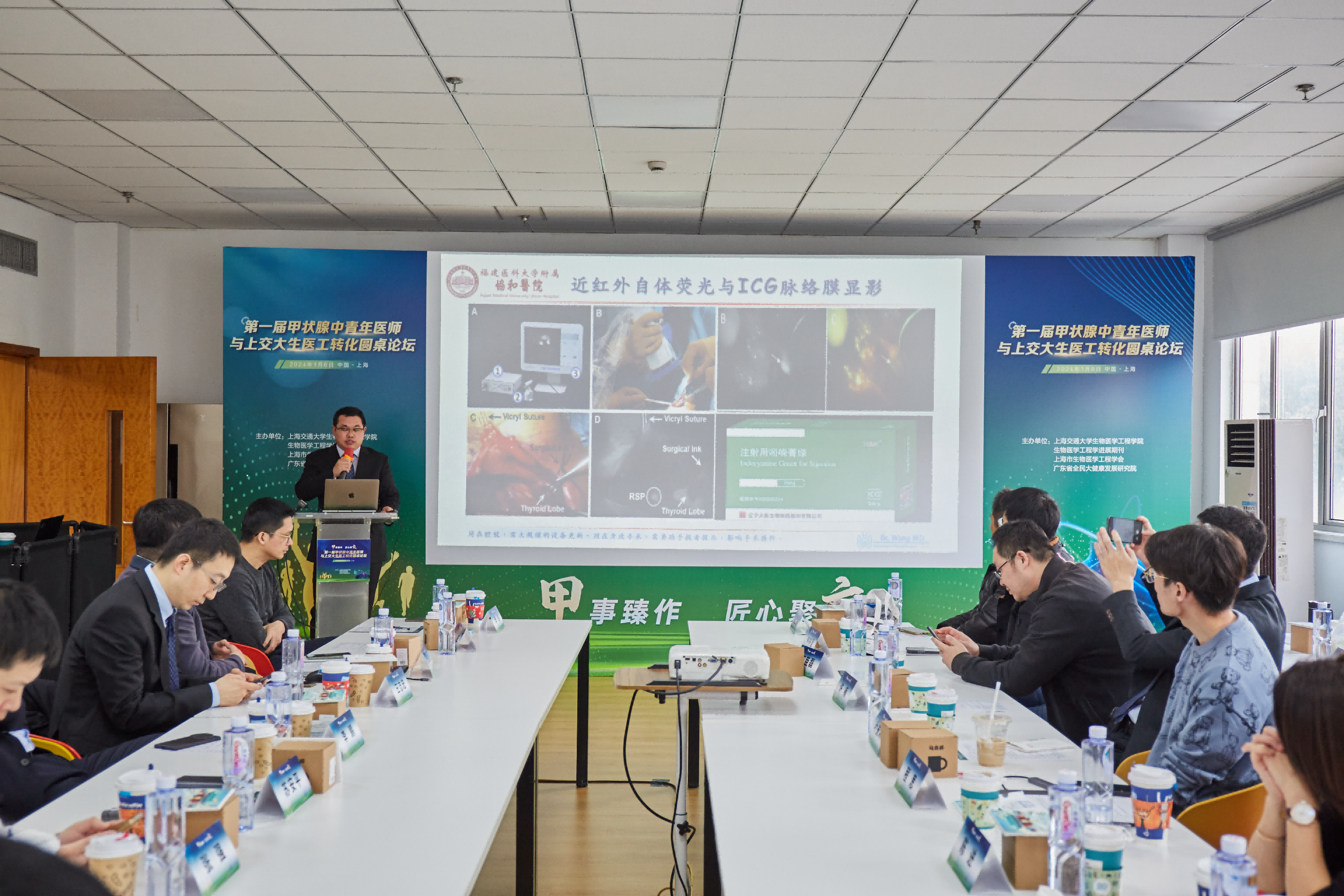
Professor Ma He from the School of Medicine and Bioinformatics Engineering at Northeastern University discussed AI applications in the diagnosis of malignant tumors like breast cancer. Multimodal deep learning training has enhanced diagnostic accuracy, aiding in the development of precise treatment plans.
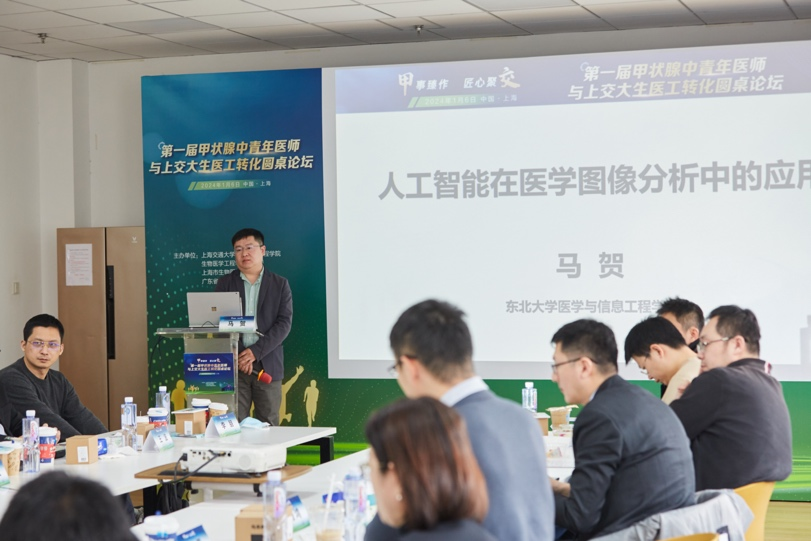
Professors Qian Dahong and Lin Guanning from the School of Biomedical Engineering shared their perspectives and experiences on AI models, technical principles, application prospects, and project implementation.
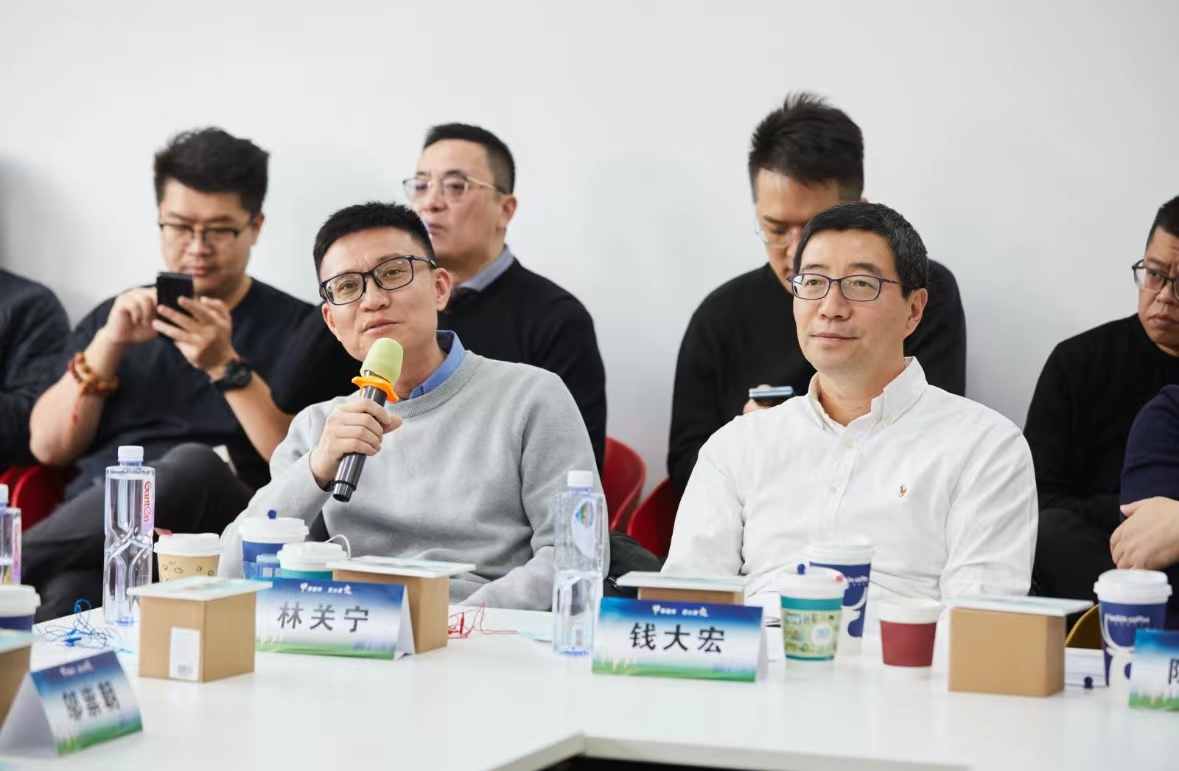
Professor Wu Chongchao introduced the development of terahertz biomedical, spectroscopic imaging, and sensing technologies, offering novel solutions to clinical challenges in thyroid disease and reaching preliminary consensus with clinicians.
